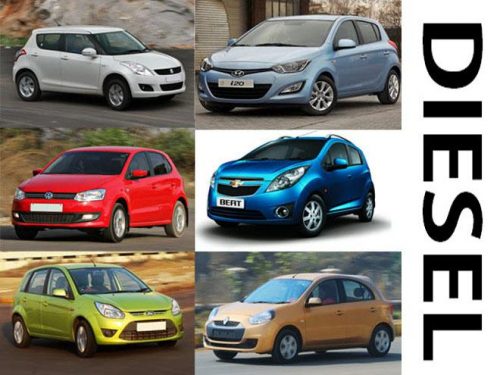The world may soon see an end to the devastating effects of diesel engine vehicles as more and more motorists are realizing the value and advantage of purchasing cleaner and safer alternatives.
In a poll conducted among almost 1,000 in-market buyers or consumers who are planning to place an order for a new car, approximately 90% of the surveyed motorists said they were considering other fuel-type cars; 66% of whom are sure they won’t be buying diesel vehicles ever again. Only one in 20 of these consumers is considering factory-order diesel cars and about 21% of used buyers are thinking of purchasing one.
Around 34% of those who won’t be buying diesel cars believe diesel engines are not environmentally friendly. Twenty-one percent said diesel vehicles do not answer their needs, which may mean they follow the UK’s low emission zones and Ultra Low Emission Zone, and Clean Air Zone protocols. Diesel vehicles that travel through these zones are penalized.
Other motorists are no longer interested in diesel vehicles because they have discovered other fuel types are cheaper and better alternatives.
Car registration figures
Aside from the research, new car registration figures have also indicated a downward trend in diesel vehicle sales. The number of new registrations for diesel vehicles in the first four months of 2022 was at 55,514. However, the number of new registrations for fully electric vehicles for the same period was higher at 77,064.
These figures are a significant increase from 2021, where around 104,100 diesel vehicles were sold at the end of April while electric vehicle sales totaled only 40,931 for the same period.
When the Dieselgate diesel emissions scandal broke in 2015, almost 50% of vehicles in the UK market were diesel engines. Now, the numbers have clearly changed as more motorists have become aware of the devastating effects of diesel, particularly through carmakers’ use of defeat devices in hiding real nitrogen oxide emission levels.
The Dieselgate scandal and its effects
In September 2015, the United States Environmental Protection Agency (EPA) and the California Resources Board allegedly found illegal defeat devices in Volkswagen’s diesel vehicles sold across the US. The devices are engineered to detect when vehicles are being tested so they can suppress emission levels to within the legal limits.
However, authorities discovered that when driven in real-world road conditions, the vehicles have unusually high levels of emissions, often multiple times over the WHO (World Health Organization) and European Union limits. In light of this, the authorities deemed that VW did not follow emissions standards. The carmaker also deceived their customers by marketing the vehicles as clean and safe. In reality, the diesel cars and vans that VW sold were pollutants.
Additionally, nitrogen oxide or NOx, the gas that vehicles emit, have devastating effects on the environment and human health.
Aside from Volkswagen, other manufacturers that allegedly installed defeat devices in their diesel vehicles include Mercedes-Benz, Renault, BMW, Jeep, Nissan, and Peugeot, among others.
Nitrogen oxide
NOx contains nitric oxide (NO) and nitrogen dioxide (NO2). It is responsible for the formation of acid rain, smog, and ground-level ozone.
If a person is exposed to nitrogen oxides, they can develop certain health issues, including breathing problems, eye irritation, nausea and dizziness, asthma, aggravated asthma (for those who already have the illness), and other respiratory diseases.
If a person is constantly exposed to excessive amounts of NOx, the effects on human health can be severe. Some people increase their risk of certain cancers and cardiovascular diseases. Asphyxiation is also a possible effect of excessive NOx exposure.
There is also evidence that constant and excessive exposure to nitrogen oxide may lead to premature death. This is what happened to nine-year-old Ella Kissi-Debrah, who died in 2013 after months of hospital visits because of seizures, asthma, and various respiratory-related issues. She died after a severe asthma attack and after an inquest; the coroner released a statement in December 2020 that air pollution was a primary contributor to her death.
Ella and her mum lived near South Circular Road, a highly polluted area in Lewisham, southeast London. Nitrogen dioxide levels in the area were constantly over the annual legal limit between the years 2006 and 2010.
These dangerous effects of NOx are the reasons why many car owners are no longer interested in purchasing diesel vehicles.
These are also the reasons why affected car owners should file an emissions claim against their manufacturer.
How to file my diesel claim
How should I file my diesel claim?
This is a common question among motorists affected by the diesel emissions scam. It’s not surprising because the process can be long and complicated, but with the help of a panel of emissions solicitors, everything can be easier.
The panel of emissions solicitors at ClaimExperts.co.uk are well-trained, regulated, and highly experienced. Their track record guarantees you higher chances of winning your claim and getting the emission compensation you deserve. Visit their website and check to see if you are eligible so you can start winning back what your manufacturer owes you.


